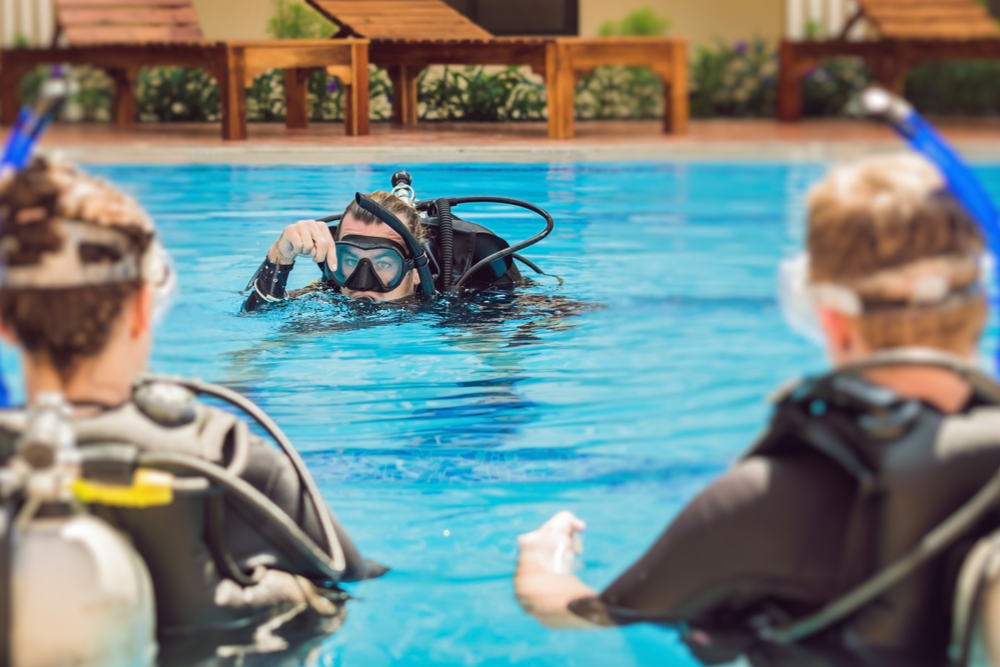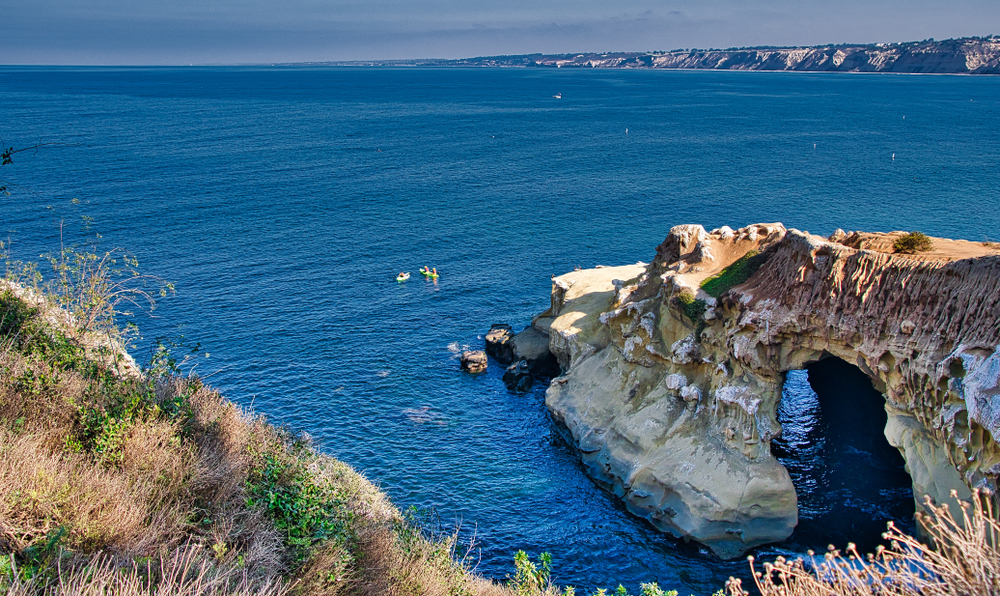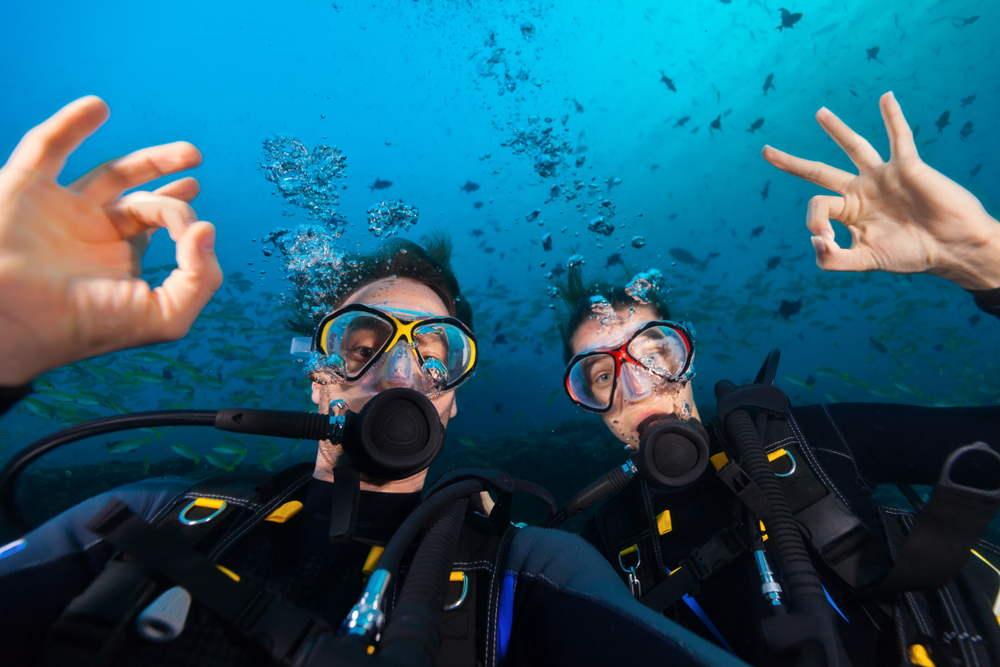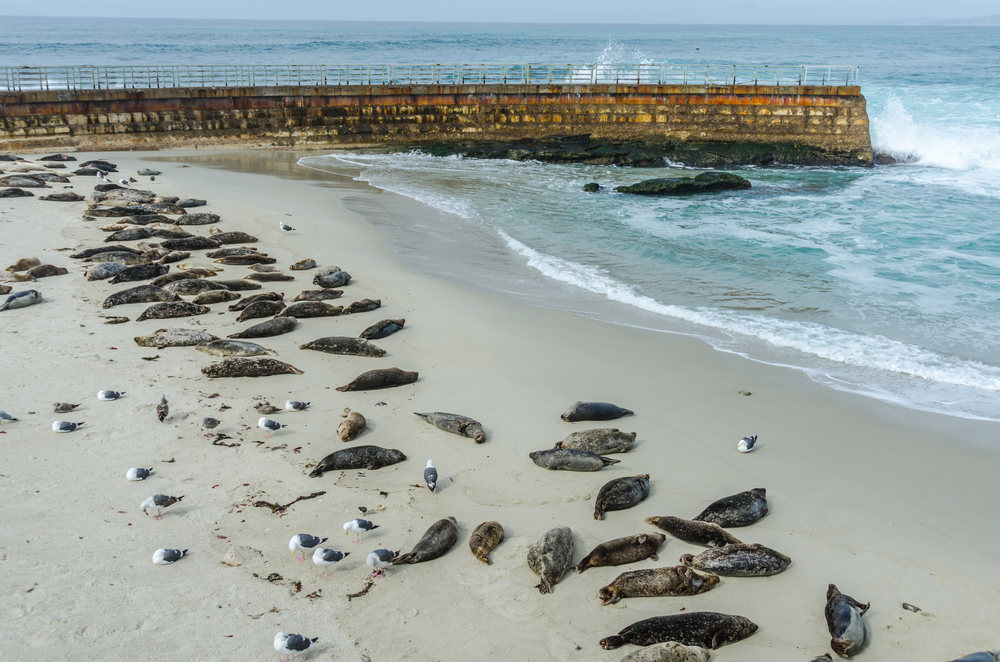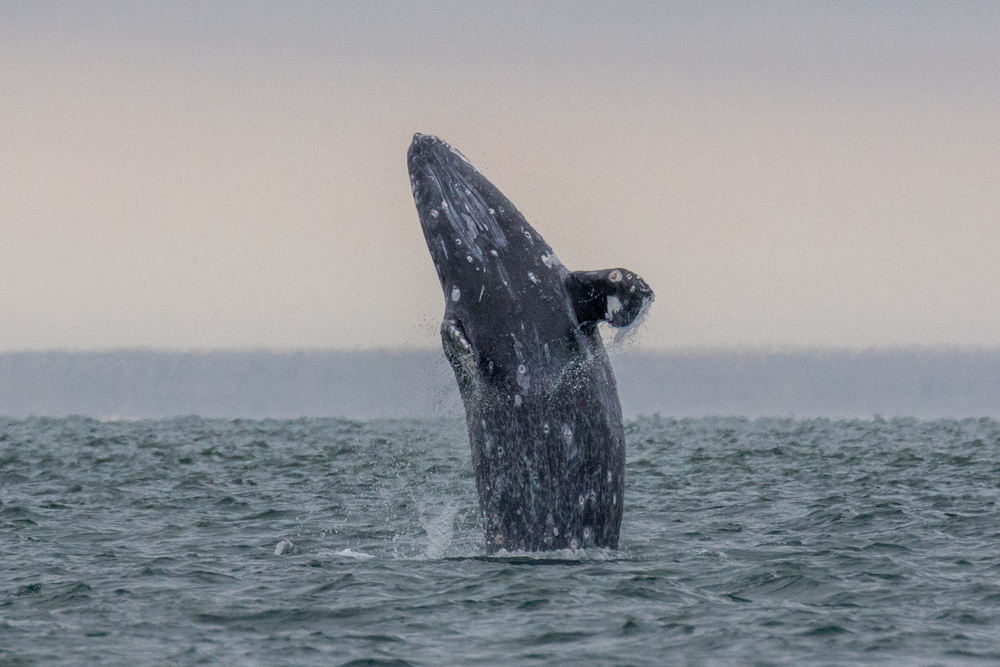Have you always wanted to scuba dive? You can easily learn when you take advantage of Trident Divers open water scuba diver basic course. This is the entry-level scuba certification course providing fundamental knowledge and skills necessary to competently engage in open water diving activities without supervision to a maximum depth of 60 feet, provided the diving activities and areas dived are approximate to those trained in. Read this blog to find out the 9 tips for beginner scuba divers before signing up for a course.
1. Physical Fitness – it’s a thing
Scuba diving is physically demanding, oftentimes compounded by cold water, heavy equipment, and lengthy approaches through deep sand or waves. If you are contemplating beginning a scuba course, take a few weeks beforehand to get in a pool and work your way up to swimming 500 yards comfortably. You would benefit also by working reps of squats, lunges and pushups into your weight routine – those tanks and weights can be up to 30-48% of your body weight.
2. Think “Big Picture”
Your scuba course will have many challenges, new terminology, and skills for you to master. Ask yourself why an emphasis is placed on the ability to get both fins on/off in under eight (8) seconds? Ask yourself why I need to have my head on a swivel – is it because waves are silent and travel past you every 6-10 seconds? Why is that important? Each skill you learn has a purpose – it is as important to “mastery of a skill” to understand why you are doing it, as it is to know how to do it.
3. Familiarize yourself with the equipment of the sport
Many of the things you will be using to successfully s.c.u.b.a. dive will be new to you. Take extra time before your course and certainly during your course to become intimately aware of how each piece functions, how it fits, and how to care for it. Challenge yourself to learn how each piece works together to make your task easier…and more importantly, how to deal with each item if/when there is an issue that arises with it.
4. Ask Why! Questions are your friend
A good student asks lots of questions. Theoretically all of this is new or mostly new to a beginning diver. It is extremely important for your motor skill development to understand the “WHY” behind the “DO”. For instance, “why do we need to be able to get both fins on in less than eight (8) seconds”?… the reason…on average the interval between two successive wave peaks is 8 seconds. If it takes you longer than that to get both of your fins on, you may find yourself having a “yard-sale” in the impact-zone of the surf, wearing a lot of heavy equipment and no way to propel yourself to safety.
5. Hydrate
Divers can lose up to 1 quart of water per tank of air. The air in a scuba tank is filtered and extremely dry. Your lungs will use about one quart of water from your body to moisten that air as you breathe. Add in the exertion factor, and normal metabolism needs – you need fresh, clean water. While diving, plan on consuming at least 3 quarts of water. Stay away from alcohol! Alcohol and diving are not friends.
6. Train your brain NOT to panic!
As terrestrial mammals we have developed 65,000 years of instincts that aren’t always helpful when breathing compressed gas under water. We have to train ourselves to be methodical, logical in our approach to dealing with issues we encounter while diving. It takes practice to competently perform “under pressure” pun intended.
7. Practice, Practice, Practice
During your training, practice and practice again at all of those skills. Practice makes perfect as they say. Practice swimming around without your mask on; open your eyes underwater and confirm that though uncomfortable you can still perform. Practice finding and adjusting all of your straps/buckles without the use of your eyes. Each of your skills can be practiced on dry land, and is a safe, supportive environment to work through the anxiety.
8. Do your research
Take the time to research different dive schools – what do they offer, what are the differences in certification agencies, how many dives will you do (both confined and open water) in your basic course? What is an “unconscious diver retrieval” and how come some agencies don’t teach that to their beginning students? There are differences between schools and instructors – cheaper does not always equate to better.
9. Consider a “Discover Scuba” program
If you aren’t completely sure about what scuba diving is, how it is going to feel, will I be able to pull this off…you might look into a program that doesn’t end in certification. A discover program is a non-certification course, designed to introduce you to the equipment used, and to give you a glimpse into how it feels to breathe off a scuba unit in the water, under controlled conditions.
Why You Should Choose Trident Divers!
Simply…we are the best! Your safety is our primary focus and it is why everything we do in our courses is developed around that focus. Add in the fact our instructors are scientifically trained divers, with decades of experience, and that we are the only program in town that requires its beginning divers to train in conditions and sites typical of what you will find in San Diego… calling Trident Divers is the best thing you could do. Call us at (619) 415-9426 or click here to book a scuba tour or course with us today!


